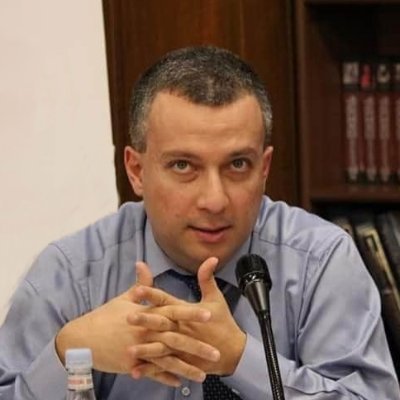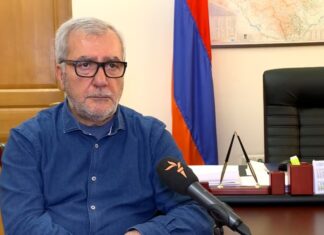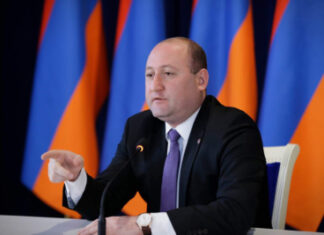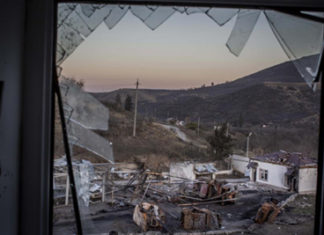The 2020 Nagorno Karabakh war has significantly changed the balance of power in the South Caucasus, increasing the role and influence of Turkey. The direct involvement of Turkey in the war and the lack of action by Russia to prevent this NATO member state from challenging the Russian zone of influence in the post-Soviet space crushed the basics of the Armenian foreign and security policy. Since the end of the first Nagorno Karabakh war in 1994, Armenian military doctrine has been based on the core belief that Russia will not allow direct Turkish involvement in a new war against Armenia. Thus, Armenia prepared itself for the war with Azerbaijan while outsourcing to Russia the deterrence of Turkey. Meanwhile, this mindset also resulted in a Russia-focused defense and security policy. Armenia was buying weapons mainly from Russia, almost all Armenian officers were studying in Russian military universities, and the structure and operating mode of the Armenian army was solely based on the Russian model. Armenia developed limited defense cooperation with other nations, including the US, Greece, and Poland, and signed its first Individual Partnership Action Plan with NATO in 2005. However, these sporadic interactions did not change the basics of Russia-focused foreign and military policy.
The Armenian political and military leadership failed to assess the transformation of the global and regional order, including the changing nature of Russia – Turkey relations, especially after the 2016 failed military coup. Thus, the 2020 war was a wake-up call for Armenia, indicating that the country needs diversification in its defense and security policy. The growing assertiveness of Azerbaijan, including direct aggressions against Armenia in May, November 2021, and September 2022, military actions against the self-proclaimed Nagorno Karabakh Republic in March and August 2022, the blockade of the Lachin corridor, and permanent threats of new escalations against Armenia and Nagorno Karabakh, have amplified the necessity of quick modernization of the Armenian army. Meanwhile, the war in Ukraine and the complete rupture of Russia – West relations created significant complications for Armenia in its quest for defense and security policy diversification. As Armenia continues its strategic alliance with Russia and the Russian peacekeepers deployed in Nagorno Karabakh are the only guarantee preventing large-scale atrocities against local Armenians, the boost in defense and security cooperation with the West may create tensions in Armenia – Russia relations. The same is also valid for the West. For many Western countries, defense cooperation, especially the supplies of modern weapons to the CSTO member and Russian ally countries, is an option which is off the table.
Another option for Armenia could be Iran. Tehran is concerned about growing Azerbaijan – Israel defense cooperation and is clearly against Azerbaijan’s vision of creating a “Zangezur corridor.” In recent months Iran sent clear signals to Azerbaijan that it would not tolerate the change of borders in the region and expressed its willingness to expand its cooperation with Armenia. However, the growing Russia – Iran cooperation, including the alleged supplies of Iranian drones to Russia, which the Kremlin uses against Ukraine, and the impasse in the negotiations to restore the Iranian nuclear deal have transformed Iran into another pariah state for the West. The US and other Western countries accepted the expansion of economic cooperation between Armenia and Iran, including the launch of Iran – the Armenia gas pipeline. However, defense cooperation with Iran, joint military drills, and supplies of Iranian weapons to Armenia will trigger a backlash from the West.
Meanwhile, the growing threat of new aggression by Azerbaijan has made the modernization of the Armenian army urgent. Russia can only partially satisfy Armenian demands, while expanding defense cooperation with the West or Iran may create complications. In the current environment, India appears as a natural partner for Armenia in its efforts to diversify its defense and security policy. Armenia and India enjoy historically friendly relations. The establishment of the Azerbaijan – Turkey – Pakistan partnership and the possibility to connect India with Europe via Iran, Armenia, Georgia, and the Black Sea have added geopolitical and geo-economic dimensions to the bilateral relations. Since the first-ever visit of the Indian minister of external affairs to Armenia in October 2021, bilateral relations started to develop quickly, and in 2022 several arm purchase deals were made, including Pinaka rocket launchers and Marg 155/39 self-propelled howitzers. India pursues a balanced foreign policy amidst the Russia –West confrontation. It did not join anti-Russian sanctions and significantly increased the purchase of Russian oil while simultaneously fostering strategic partnership with the US within QUAD and I2U2 initiatives. Thus, increased defense and security cooperation of Armenia with India is less contentious for the West and Russia while allowing Armenia to push forward its modernization of armed forces. In this context, Armenia and India should also look to other opportunities, including joint peacekeepers drills and cooperation in defense education and strategic planning.








